Question on the Fast Tract Diet and Candida
“I have successfully reduced SIBO to negligible, in part due to the Fast Tract diet. Thank you! The doctor indicates that candida is the chief problem now. Is the Fast Tract diet helpful for candida as well? I know candida is more yeast based and a different creature.”
Here is my response
SIBO has received a lot of press in recent years given its strong connection to IBS and so many other digestive (GI) and health conditions. But small intestinal fungal overgrowth (SIFO) can also result in GI symptoms as highlighted in this recent review.[1]
A variety of fungi including Candida albicans are natural members of our gut microbiota. For the most part, we never know they’re there. But unlike most fungi, C. albicans can overgrow under the certain conditions and even assume an invasive hyphal form that can cause tissue damage.[2]
Before talking about diet, there are three things you can do to protect yourself against SIFO:
Avoid antibiotics whenever possible. Antibiotic use is the biggest reason people end up with yeast overgrowth. Your best defense against SIFO is having a robust (mostly bacterial) microbiota. Gut bacteria help keep the small intestine acidic which helps keep Candida in check.
Avoid acid reducing drugs including PPIs and H2 blockers that will also reduce the acidity in your small intestine.
Stay healthy, get adequate rest and address any medical conditions you may have or medicines you are taking that negatively impact your immune system. Most fungal infections occur when people have compromised immune systems.
For people diagnosed with SIFO, I believe the Fast Tract Diet will help based on important similarities between bacteria and yeast.
Both SIBO bacteria and yeast including Candida species derive the bulk of their energy from carbohydrates. So limiting fermentable dietary carbs makes sense to me.
But there are also some differences between bacteria and yeast that present both challenges and opportunities in dealing with SIFO. While many bacterial strains can use both simple and complex carbs, Candida species depend on simple carbs like glucose, fructose, galactose, maltose, etc.
This idea, limiting simple carbs might help with Candida overgrowth, originated from studies in mice. Supplementing chow with glucose resulted in invasive Candida overgrowth. But when the concept was tested in healthy people, dietary supplementation with refined carbohydrates did not result in Candida overgrowth. Keep in mind that this study enrolled people who did not have Candida overgrowth to begin with.
People with SIFO likely suffer from some level of carbohydrate malabsorption. Carbohydrate malabsorption means some of the carbs we consume will persist in the small intestine. In the case of SIBO, all of these malabsorbed carbs increase the risk, but with SIFO, the complex carbs (fiber and resistant starch) may not be a problem. Simple carbs, instead have more potential to drive Candida overgrowth. Therefore, the Fast Tract Diet approach makes sense in that it limits malabsorption of the whole range of fermentable carbs. And tweaking the diet to focus on simple carbs may present opportunities for fine tuning the diet.
I recommend reading the troubleshooting sections in the Fast Tract Digestion books, which discuss 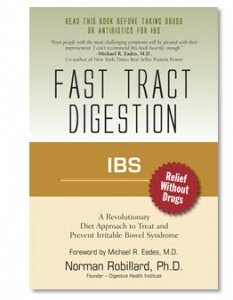
- Limit sucrose, fructose and oligosaccharides containing fructose. All of these are likely to increase the amount of simple carbohydrates, especially fructose in the small intestine.
- Limit other sugars, even those that are easy to digest including glucose, galactose and maltose.
- Limit all starches, even easy-to-digest (low FP) starches.
Once symptoms are under control, easy-to-digest low FP starches and low FP sugars can be added back gradually.
Fiber and even resistant starch (RS) may be less of a concern for Candida and some suggest might even be helpful in small quantities. But I recommend some caution here. Without evidence that adding complex carbs improves SIFO outcomes, I recommend limiting the complex carbs as well, at least initially. Fiber and RS can be added back gradually after symptoms resolve.
Also, check out the chapter on “Underlying Factors” in the books including antibiotic use, stomach acid and immune impairment which I mentioned above are common factors in Candida overgrowth.
Specific Concerns
Aged Cheese:
Some people expressed concern that aged cheese or other foods containing yeast may cause symptoms. Though cheese is made primarily by bacterial fermentation, some cheeses use yeasts in the process to achieve various flavors and textures – limburger, brie, blue cheese, etc. I would not expect this exogenous yeast to be a problem for most people unless they have immune deficiency. But in the end, trust your body. If you have symptoms from cheese or other individual foods, by all means limit these foods, perhaps introducing them carefully at some later point once symptoms are under control. Also, let us know about your experience in the comments.
Ketones:
One other concern raised is the risk of Candida feeding on ketones when someone reduces their dietary carbohydrates to ketogenic levels. While some yeast species are able to metabolize ketones, they can also metabolize glucose. I’m not sure of the amount of either ketones or glucose from the blood that make it to the small intestine for overgrowing yeast to consume, but it stands to reason that either glucose (non-ketogenic diet) or ketones (ketogenic diet) in the blood might provide substrate for yeast. And the current evidence points towards high glucose as the bigger problem.
Rather than trying to control this ratio without definitive data on the effect, focusing on limiting the amount of fermentable material in our diet makes more sense to me. Also, the Fast Tract Diet (other than temporary carb cutting during troubleshooting) is a flexible diet that supports both low and higher carb eating preferences.
Update
I received some feedback on ketones and Candida from Paul Jaminet, author of Perfect Health Diet. I am posting this feedback and my responses here so people can weigh their own concerns about cutting carbs to low (ketogenic) levels as a more vigorous way of addressing challenging cases of intestinal Candida overgrowth.
Paul: It’s well known that ketones suppress anti-Candida immunity. See eg https://femsle.oxfordjournals.org/content/190/1/35.long. As for the other side, can they promote Candida growth by feeding them, while Candida is missing an enzyme or two found in humans (eg ATP citrate lyase, https://www.ncbi.nlm.nih.gov/pubmed/2199302, the enzyme for synthesizing lipids from carbohydrates or ketones), the pathways for converting ketones to acetyl-CoA which feeds the TCA cycle are evolutionarily highly conserved and I’ve never seen any sign that they are missing in Candida.
Norm: I could not access the complete article for one of your references (https://www.ncbi.nlm.nih.gov/pubmed/2199302?hc_location=ufi), but I did read the other one. Here are my observations.
Intestinal control of Candida:
1. Ketones altering the killing of Candida by neutrophils is irrelevant in controlling intestinal Candida overgrowth.
2. As for Candida using ketones for energy in the GI tract, you mentioned the TCA cycle. But this requires oxygen, which is pretty scarce in the intestines. This recent report suggests that dysbiosis may involve a shift to higher O2 levels. Perhaps this is something to explore, but otherwise, I don’t see adequate O2 levels for aerobic respiration via the TCA cycle.
Systemic control of Candida (tissue or blood infections):
These are the highlights from the Saeed paper you cited (Production of Pyruvate by Candida albicans: Proposed Role in Virulence) :
• Focuses on the role of myeloperoxidase (MPO), the enzyme that helps neutrophils (phagocytic white blood cells) kill Candida (in tissue, not the gut).
• MPO is inhibited by acetoacetate, one of the ketone bodies increased during ketosis.
• The authors suggest that prolonged ketosis may be a risk factor for (systemic) Candidiasis because Candida albicans can produce lots of pyruvate, a metabolite that may be converted to acetoacetate.
My concerns:
• Acetoacetate plasma concentrations are normally extremely low (micromolar range).
• The authors don’t provide evidence that Candida converts the excess pyruvate it makes into enzyme-inhibiting acetoacetate, and thus that pyruvate is ultimately the metabolite preventing neutrophils from killing Candida.
Studies that looked at killing of Candida by neutrophils in diabetics found that glucose or Betahydroxybutyrate (ketone) inhibited killing independently and in combination. https://www.ncbi.nlm.nih.gov/pubmed/3084140
Both glucose and ketones in concentrations found in diabetic ketoacidosis inhibits T-cell proliferation. https://www.ncbi.nlm.nih.gov/pubmed/8136782
According to this review that includes the authors own work https://www.ncbi.nlm.nih.gov/pubmed/2407580:
• Hyperglycemia itself predisposes hyperglycemic patients to infection by pathogens including Candida albicans.
• In response to glucose, Candia albicans produces a protein that mimics complement (system of proteins that help antibodies and phagocytes kill pathogens) that promotes adhesion but subverts phagocytosis.
• Expression of the protein increases in a dose-dependent fashion with increasing glucose concentrations from 1 to 20 mM
• The protein acts by binding to complement proteins C3 and iC3b involved in opsonizing (capturing) pathogens.
Conclusions:
• I am not convinced of Candida’s ability to use ketones efficiently for fuel in the GI tract. I will rethink this if increased GI oxygen levels (in dysbiosis?) needed to support the TCA cycle can be proven.
• Both ketones and glucose appear to repress cellular immunity to Candida.
• Other research suggests that increased blood glucose levels alone can induce a Candida protein which helps Candida evade the immune response regardless of ketone concentrations.
• I am not convinced that ketones per se are the only potential mechanism to help Candida evade the immune response.
The Fast Tract Diet is not necessarily a ketogenic diet as it controls dietary fermentable carbohydrates not carbohydrates per se. But I suggested on my blog that limiting overall carbs may be the best way to put the brakes on intestinal Candida overgrowth. If it turns out that Candida efficiently uses ketones for growth in the intestine, I will rethink this strategy and update my recommendations.
Paul: To some degree we’re focused on different problems, I was never too concerned about Candida confined to the gut, I was focused on systemic infections which are the major health risk. Also, I don’t think Candida is going to produce and release ketones; the ketosis that would be problematic is that generated by the host, and again this is in the context of systemic infections. … I think even for gut issues, the problem from Candida is going to be in its invasion of gut cells and destruction of extracellular matrix, not presence on a mucosal layer.
Norm: Paul, My review casts doubts on the efficacy of avoiding ketosis for preventing and controlling systemic Candida infection as well. The studies we’re discussing show that both ketones and glucose can be metabolized by Candida and both ketones and glucose can inhibit immunity to Candida. So what is accomplished by replacing ketones with glucose?
Paul: Candida is killed by the myeloperoxidase pathway which relies on glucose, it cannot use ketones; also by antimicrobial peptides. Moreover, immune cells are more mobile and more active at phagocytosis when consuming glucose rather than ketones. So anti-Candida immunity is stronger when not on ketosis and getting adequate carbs…. My main point in discussing Candida metabolism is that it can utilize many substrates so there’s no way to “starve” Candida, as long as you are alive it has food. You have to support anti-Candida immunity.
Norm: I agree for systemic infections that starving Candida is not a viable strategy. In the gut I do think limiting fermentable carbs is a good idea since Candida can’t use respiration in the gut and is forced to ferment the same carbs bacteria do.
As for ketosis, or rather insufficient circulating glucose limiting systemic Candida immunity, it’s an interesting idea. I would be interested in seeing more proof. Things like an increase in the incidence of fungal infections for people on HFLC diets. And data showing that the amount of circulating glucose during ketosis is inadequate for immune cells to function. There was one recent report that fasting leads to some turn over in immune cells, but that was seen as a good thing in terms of refreshing the immune system.
______________________________________________________________
[1] Erdogan A1, Rao SS. Small intestinal fungal overgrowth. Curr Gastroenterol Rep. 2015 Apr;17(4):436
[2] Sudbery PE. Growth of Candida albicans hyphae. Nat Rev Microbiol. 2011 Aug 16;9(10):737-48.[/fusion_builder_column][/fusion_builder_row][/fusion_builder_container]
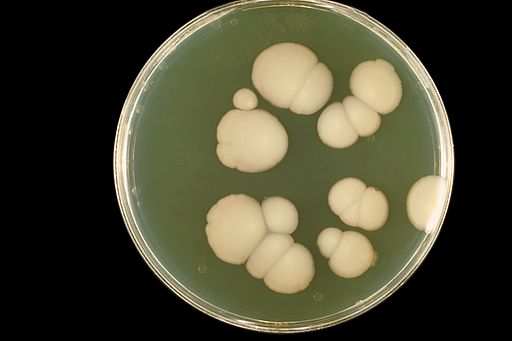

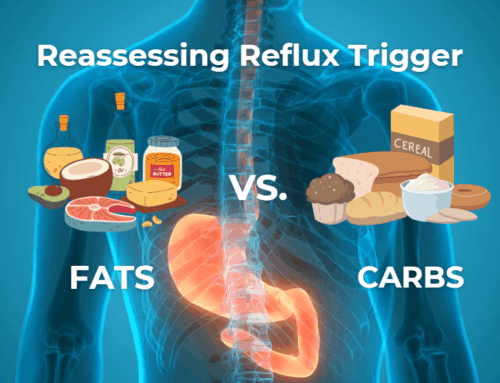
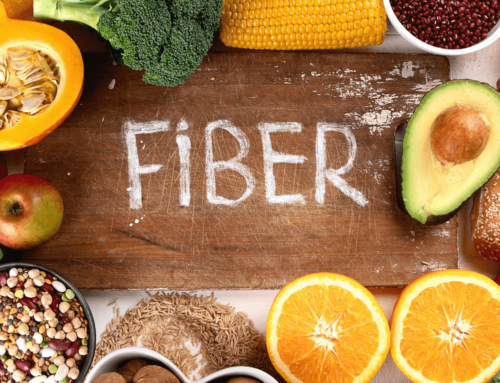
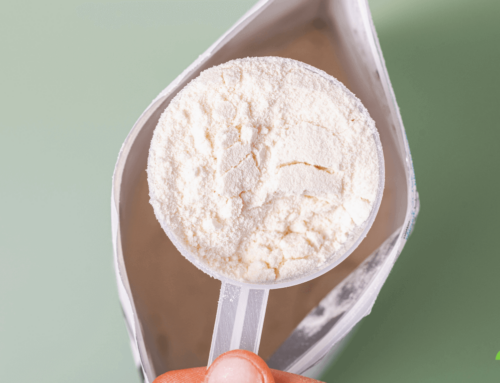

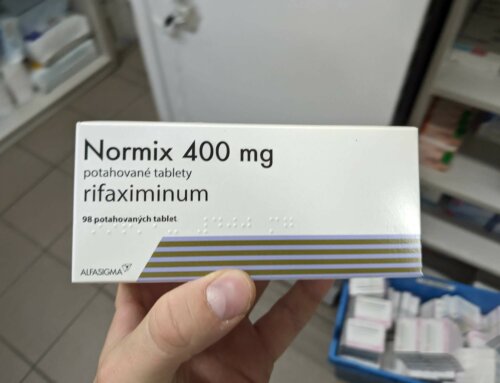
Dr. Robillard, Your books (I read them all) gave me my life back. I cant thank you enough! As a nutritionist I am very aware of my body/digestive tract and intake. 3 years ago I started suffering from unusual symptoms that started with a sour taste in my mouth, often nausea would accompany the foul taste (and perceived odor), and eventually constipation followed. My entire digestive system was way out of whack! It was debilitating at times. As the months went by and doctors (alternative, integrative and mainstream) could not figure it out, I was diagnosed with silent GERD and gastritis. I didnt believe it. I knew my trigger foods were different than what is typical of GERD. I went through countless doctors appointments, procedures and tests, but doctors kept coming back with GERD. That’s when I came across your website. I googled “carbohydrates and GERD”. Your books were like finding a key to mystery. They explained why I could eat black beans but not lentils, small amounts of jasmine rice but not any basmati, cooked veggies are easier (for me) than raw, and a bite of cake every now and then is fine but a piece would cause instant symptoms. I have been following your methodology for over 8 months and it really has saved me. Best part, now I can incorporate small amounts of foods that would have had me doubled over in pain a year ago without reaction–I had a small millet salad the other day! Heavenly. Thank you!
Thanks for that feedback Amanda and very happy to read you are better and adding back some foods and an occasional treat now.
What is the difference between black beans and lentils for digestion? I checked black turtle beans but it seems they are rich in resistant starch – how this will make them easy to digest? What am i missing?
I just found out I have systemic candida. What do I do?
https://www.sciencebasedmedicine.org/candida-and-fake-illnesses/
One popular fake illness is chronic candidiasis. Candida albicans is a fungus that colonizes about 90% of the population (meaning it is present in the body but not causing an infection or any problems). It can, however, become an infection, usually at times of stress or immunocompromise. The most common manifestations are thrush (a superficial Candida infection in the mouth) and vaginitis, also commonly referred to as a yeast infection.
Candida can also rarely cause serious systemic infection, but this is mostly restricted to those with compromised immune systems, such as patients undergoing chemotherapy or with advanced AIDS.
I am working on gut issues. and am certain of Candida, but unsure of SIBO or any upper gut
bacterial overgrowth, but I may I have it. My question is, to be on the safe side, eating lower
FP foods sounds good. My problem is my very low body weight and I can’t digest super amts
of fats (2Tbsp of oil at a meal is okay). Also, blood sugar is a bit of an issue (5.9 A1C) to watch
with no diabetes yet. Is Delayed Stomach emptying automaticaly sIBO?
So, I can’t afford to lose any weight, but have to balance the sugars. Is Brown Rice Jasmine
an option? How about Quinoa, Teff, Amarnth, Sweet Potatoes and the Beans that Monash
University says are okay in small amounts (canned lentils and garbanzos)?
Also, is Resistant Starch any cooked and cooled or recooked food or is it food that is older than
24 hours? I have read different things. I can’t cook 1 serving of rice every meal and also I have
to eat out due to work travel and can’t expect it always to be totally fresh and not leftovers. I
guess I need to buy one of the books and it would explain thins better.
Fake? Wow- as someone who has several auto immune issues and had a doctor over prescribe antibiotics for 6 months as well as steroids and then had surgery on my mouth and had thrush break out during surgery and enter my blood stream , then became extremely ill , skin fungus white patches on arms legs and torso , neck .overgrowth of thrush , development of rosacea which I never had prior , postulates on my nose , overgrowth of dermodex in my eyes I get furious at the though that you say this is fake . It’s been a year and half of hell trying to recover from the damage done to my system . Lost 30 lbs down to 93 lbs and thought I was going to die . Nothing fake about it when you are fighting that with other issues .
From what I have seen the site “Science Based Medicine” does nothing but try to undermine any new or integrative medicine, tries to convince us that drugs are the only answer and really offers nothing to help numerous people actually get well. Easy to see whose side they are on.
CJ, I’m with you. Candida is not fake. However, my daughter is an MD and I know they are not taught about this in medical school, so therefore they don’t believe it’s real. Medical school curriculum is very stagnant in a way, and desperately needs to evolve in areas of nutrition, digestion, autoimmunity, etc. Conventional medicine has many weak areas, especially when it comes to chronic disease.